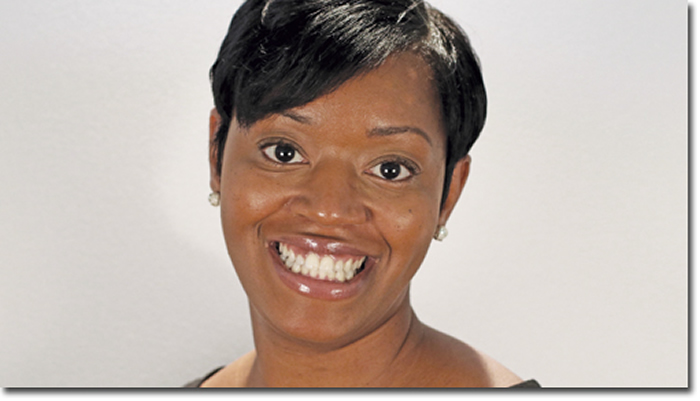Meet Nichole Burnside

This past February, Nichole Burnside began her role as Diversity, Equity, and Inclusion program manager in SPH, where she will head up implementation of SPH's DE&I strategic plan. Burnside's passion for diversity began back in high school, when she helped form a group called Cultural Outreach that would reach out across demographic lines to make people feel included. "I've always had a passion for treating everyone the same," says Burnside. "To know that people can be discriminated against because of something they have no control over is disheartening. I am very concerned with making a world for our children that is more empathetic."
Burnside has been at U-M for 15 years, including six years at the Michigan Institute for Clinical and Health Research (MICHR), where she helped increase enrollment of underrepresented groups in clinical and health research and assisted community groups in writing research proposals. More recently she worked for the Institute for Social Research, where she was a key contributor to ISR's strategic DE&I plan.
Burnside works tirelessly to ensure that DE&I values become a permanent part of workplace expectations rather than a secondary consideration. "A structure is not sustainable without a foundation," she says. "That's how we need to operate with DE&I. We can't build an inclusive workforce for today's community and tomorrow's leaders without DE&I. I am encouraged by the spirit at SPH. People want to be here. I want to enhance that love for this community and bring more exposure to the work being done here."
"We can't build an inclusive workforce for today's community and tomorrow's leaders without DE&I."
Burnside is the first to acknowledge that SPH's commitment to DE&I does not begin with her arrival. Many others have laid the foundation for developing and beginning to implement SPH's strategic plan. And SPH's is only one of the 49 plans published across the U-M community over the last year or so. The primary goal of SPH's particular plan is to "create an environment within the School of Public Health that allows for positive contributions from all of those engaged in public health and that maximizes equity and inclusion among our stakeholders."
Burnside is eager to have conversations about diversity, including the difficult conversations. She wants to see all SPH students trained in diversity as a way of life. "They will be faculty and practitioners someday," she reminds us, "and will be teaching the next generation of public health professionals, hopefully in new and more equitable contexts."


